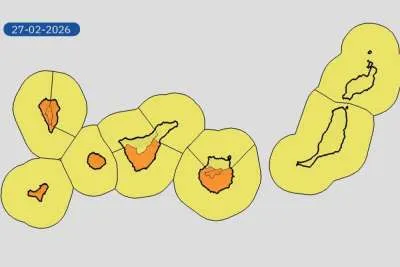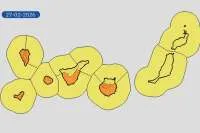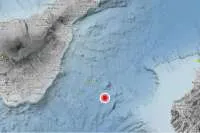Government: We will reintroduce restrictions if rise in infections impacts ICU's and mortality rate
- 30-06-2022
- Health
- Ministry of Health
Those of you who thought that Covid was over, or choose to ignore it, think again, as the seventh wave of the pandemic is intensifying in the Canary Islands, and throughout Spain, and the Government have said today that if the increase in infections has a strong impact on the occupation of ICUs and the mortality rate, a reintroduction of restrictions is not ruled out.
The director general of Public Health of the Canary Islands, José Juan Alemán, said earlier today that “We are having constant meetings with the Public Health Commission where we are analyzing the data to take unified measures, and based on the behaviour of these indicators, if there is a greater risk due to the activities of the summer, restrictive measures will be taken to continue protecting the most vulnerable of the population, to be able to combine and maintain economic and social activity.”
The latest data shows that Gran Canaria is now at high risk due to the incidence of infections in people over 60 years of age, with hospital admissions of Covid patients increased by 20% in four days, and the Ministry of Health expects that Tenerife, Fuerteventura and Lanzarote will soon be in the same situation.
“We are in an ascending situation of the incidence with a high transmission and spread of the virus, and it is foreseeable that it will continue to increase due to the normalization of all economic and social activity, and the entry of new variants of omicron, BA.4 and BA.5”, explains the Canarian health official.
In fact, in the Canary Islands, these subvariants already account for 40% of coronavirus infections according to preliminary data from last week's sequencing of samples, which will be reflected in the next report from the Ministry of Health.
“The figure is practically doubling every week and the Ministry qualifies these subvariants as a high risk because it is leading to a higher rate of transmission and an increase in cases,” adds Alemán.
The BA.4 and BA.5 variants have a greater ability to circumvent the immunity provided by both vaccines and natural infection, although their expansion has not translated, for the time being, into an increase in hospitalizations in critical care and emergency units or deaths, although they have in admissions in conventional beds.
Surveillance of new variants:
Whether we like it or not, the pandemic is still with us and there are no certainties about its behaviour and future scenarios. In addition to controlling infections in the most vulnerable population, and its impact on the health system, the Director General of Public Health explains that surveillance of the penetration of new variants has been reinforced with more sequencing of virus samples.
“There is a threat, because there are new variants, and because we continue in a scenario of uncertainty; I do not want to repeat myself, but depending on the behaviour of the virus and its impact on ICU admissions and deaths, we will start talking about more restrictive measures, which we hope will not come, but the measures must always be proportional to the risk.”
"The pandemic is not controlled and the vaccine is the most effective tool"
The Covid pandemic has left restrictions behind and currently only some remain in force, such as the obligation to wear a mask in hospitals and on public transport. Most of the measures have become only recommendations.
"We have to be aware that we are in a pandemic situation that is not controlled, although now it is a less serious situation than in other waves, but there are measures to protect ourselves and the most vulnerable people that we must continue to comply with," says the director of Public Health, José Juan Alemán.
Vaccination continues to be the most important tool to fight Covid, but vaccination coverage, especially with regard to the third dose or to the child population, has stagnated. "It is a situation that is not exclusive to the Canary Islands, and is the result of the normalization of life."
“People have lost their fear, the behaviours of the disease is different and pandemic fatigue has also had a significant effect on vaccination coverage, but we have to continue insisting that the virus is still among us and that the vaccines continue to work; in the future there will be other more effective ones but the ones we have to continue to be as well and save many lives”, he concludes.
Other articles that may interest you...
Trending
Most Read Articles
Featured Videos
TributoFest: Michael Buble promo 14.02.2026
- 30-01-2026
TEAs 2025 Highlights
- 17-11-2025































































